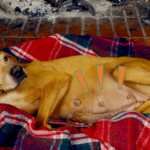What To Feed Sick Dog
Feeding a Sick Dog: What You Need to Know
When our furry friends fall ill, it can be tough to know what to do. One of the most important things you can do for your sick dog is to ensure they are getting the proper nutrition they need. Here’s everything you need to know about what to feed a sick dog.
First Things First: Talk to Your Vet
Before we get into the specifics of what to feed a sick dog, it’s important to understand that every dog is different. What works for one dog may not work for another. That’s why it’s crucial to talk to your vet before making any changes to your dog’s diet.
Your vet will be able to assess your dog’s condition and recommend an appropriate diet based on their specific needs. They may also be able to offer additional advice on how best to care for your sick pup.
What Types of Food Are Best for Sick Dogs?
When it comes to feeding a sick dog, there are a few different types of food you can consider:
1. Prescription Diets
If your vet recommends a special prescription diet, this should be your first choice. These diets are specifically formulated for dogs with certain health conditions and are designed to provide all the necessary nutrients in the right proportions.
2. Homemade Meals
If a prescription diet isn’t necessary or feasible, homemade meals can be a good option. However, it’s important to make sure these meals are nutritionally balanced and meet your dog’s specific dietary requirements.
3. Commercial Diets
Commercial diets can also be an option, but it’s important to choose high-quality brands that use wholesome ingredients and avoid fillers and artificial additives.
What Nutrients Do Sick Dogs Need?
The exact nutrient requirements for sick dogs will vary depending on their condition and other individual factors. However, there are some key nutrients that are especially important during times of illness:
1. Protein
Protein is essential for building and repairing tissues in the body, which is especially important when a dog is sick. Choose high-quality sources of protein like lean meats, fish, and eggs.
2. Fat
Fat provides energy and helps dogs absorb certain vitamins. Look for healthy sources of fat like salmon oil or flaxseed oil.
3. Carbohydrates
Carbs provide energy and can be a good source of fiber. Choose complex carbohydrates like sweet potatoes or brown rice.
4. Vitamins and Minerals
Vitamins and minerals are crucial for overall health and immune function. Look for foods that are rich in vitamins A, C, and E, as well as minerals like zinc and selenium.
Some Helpful Tips
When feeding a sick dog, there are some additional tips you can keep in mind to ensure they get the nutrition they need:
1. Offer Small, Frequent Meals
Instead of feeding your dog one or two large meals per day, try offering smaller meals throughout the day. This can help prevent nausea and make it easier for your pup to digest their food.
2. Keep Hydration in Mind
Sick dogs may be reluctant to drink water, but it’s crucial that they stay hydrated. Try offering water with low-sodium chicken broth or other flavors to encourage drinking.
3. Listen to Your Dog
While it’s important to follow your vet’s advice when it comes to feeding a sick dog, it’s also important to listen to your dog’s cues. If they’re not interested in eating a particular food or seem uncomfortable after eating, it may be time to try something else.
4. Take It Slow
Introduce any new foods gradually to avoid upsetting your dog’s stomach. Start with small portions and slowly increase over time.
In Conclusion…
Feeding a sick dog can be challenging, but with the right approach, you can ensure your furry friend gets the nutrition they need to recover quickly. Remember to talk to your vet, choose nutritious foods, and listen to your dog’s cues. And don’t forget to throw in a few jokes to keep things light-hearted!



